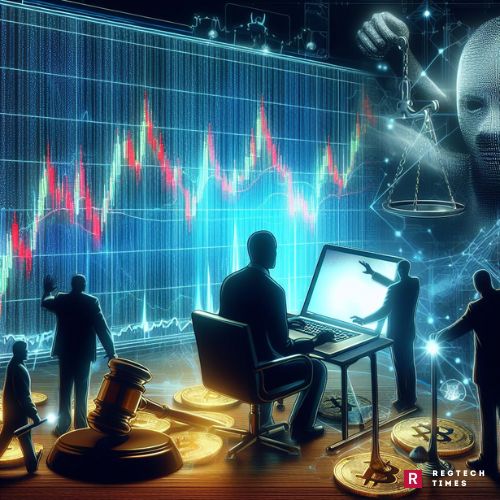In a landmark decision that reverberates through the cryptocurrency world, Avraham Eisenberg, a 28-year-old crypto trader, has been found guilty of fraud and market manipulation in a federal court in Manhattan. This case, centred around the deceptive practices on the decentralized finance (DeFi) platform Mango Markets, marks a significant moment in the evolving landscape of cryptocurrency regulation and legal oversight.
On October 11, 2022, Eisenberg engaged in a series of strategic trades that exploited the Mango Markets system, a platform based on the Solana blockchain. By selling large volumes of MNGO perpetual futures between accounts he controlled, Eisenberg artificially inflated the token’s price. This manipulation enabled him to “borrow” $110 million worth of various cryptocurrencies under false pretences, leveraging the inflated value of the collateral.
The aftermath of the exploit was dramatic. Eisenberg proposed to the Mango Markets’ decentralized autonomous organization (DAO) to return $67 million of the stolen funds in exchange for immunity from prosecution and permission to keep the remaining $43 million. However, the DAO declined the offer, which eventually led to Eisenberg’s arrest and prosecution.
Throughout the trial, the prosecution argued that Eisenberg’s actions were premeditated and demonstrated a clear intent to defraud and manipulate the market. They pointed to evidence such as Eisenberg’s internet searches related to market manipulation and his subsequent attempt to flee to Israel, suggesting a consciousness of guilt.
In contrast, Eisenberg’s defence, led by renowned crypto defence attorney Brian Klein, contended that his client’s trading strategies were within the legal confines set by the decentralized protocol of Mango Markets at the time. The defence highlighted that Mango Markets operated with smart contracts that were unaudited and cautioned users to engage at their own risk, thus attempting to shift some responsibility back onto the platform’s regulatory framework.
Despite these defences, the jury sided with the prosecution, convicting Eisenberg on charges of commodities fraud, commodities manipulation, and wire fraud. This conviction underscores the jury’s stance that exploiting loopholes in DeFi platforms does not absolve one of accountability under U.S. law.
This case is pivotal for several reasons. First, it highlights the vulnerabilities within DeFi systems, which are often praised for their decentralization and resistance to censorship but criticized for their lack of regulatory oversight. The Mango Markets incident demonstrates how the innovative features of DeFi can be manipulated for fraudulent purposes.
Second, the conviction of Eisenberg signals a more assertive approach by U.S. legal authorities in tackling fraud within the cryptocurrency space. This stance is echoed by Damian Williams, U.S. Attorney for the Southern District of New York, who remarked on the office’s commitment to using innovative methods to protect all financial markets. This approach reflects a growing recognition of the need for more robust legal frameworks to govern the rapidly evolving digital asset marketplace.
Related articles:
- Avraham Eisenberg’s Conviction: 110M Crypto Fraud Case Uncovered
- Indian AML Watchdog Seized $11 Million worth of Assets in Bitcoin Ponzi
- Binance’s Market Re-Entry: Overcoming Regulatory Challenges and Emphasizing Compliance
Lastly, the trial itself was a demonstration of how traditional legal concepts are applied to cases involving complex digital transactions. The legal proceedings explored the nature of smart contracts and the implications of their terms, setting precedents for how similar cases might be handled in the future.
Eisenberg now faces up to 20 years in prison, with his sentencing scheduled for July 29. This case not only marks a significant milestone in crypto-related jurisprudence but also serves as a cautionary tale to the crypto community regarding the legal boundaries of trading strategies in decentralized environments. As the digital asset space continues to mature, the Eisenberg case will likely be referenced as a cornerstone in the ongoing dialogue about the intersection of law, technology, and market regulation in the cryptocurrency sphere.


